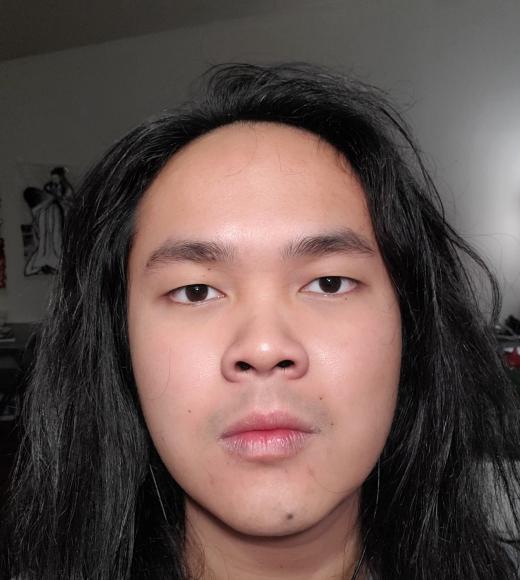
Position Title
Graduate Student in German
Cota-Robles Fellow 2024-26
Position Title
Graduate Student in German
Cota-Robles Fellow 2024-26
he/him/his
416 Sproul Hall
Bio
Growing up in multicultural and multilingual Malaysia for the first formative seventeen years of my life has bestowed upon me with fluency in five languages—Hokkien (my mother tongue), Malay (the national language), English (Malaysia was part of the British Empire), Mandarin (taught at school), and Cantonese (the language of popular Chinese period dramas). I took Japanese, French, and German courses at Sierra College and tutored those languages as a PASS peer tutor (student tutor) in the Sierra College Tutoring Center. While double majoring in both Japanese and German at UC Davis as an undergraduate student from 2021 to 2024, I established and ran two language learning clubs at UC Davis, namely The Learned Society for Classical Japanese Research at UC Davis and The German Fantasy Association at UC Davis. While growing up in Malaysia, I was engrossed with Chinese character etymology, Classical Chinese, and Chinese calligraphy and painting. The fact that my mother tongue of Hokkien shares many cognate historical Middle Chinese pronunciations of Chinese characters from the Jin 晉 (266–420) and Tang 唐 (618–907) dynasties with Japanese has allowed me to excel in the Japanese courses at UC Davis. My Chinese proficiency has also blessed me with the linguistic skills needed to excel in the German courses at UC Davis because German is morphologically and syntactically similar to both contemporary Chinese and Classical Chinese. I am in love with German and feel that German is the most “Chinese” European language, and Chinese the most “German” East Asian language. In addition, my fluency in Malay allows me to enjoy and appreciate both Latin and Greek as many of the Sanskrit loanwords in Malay are cognates of Latin and Greek words because Latin, Greek, and Sanskrit are conservative descendants of Proto-Indo-European.
Captivated by both Germanic and Greco-Roman mythology, folktales, and legends, I am currently working towards completing a Designated Emphasis in Classics and Classical Receptions while primarily completing my German M.A. and Ph.D. degrees at UC Davis. I anticipate writing a dissertation paper explaining how German fantasy literature incorporates elements from both Nordic and Mediterranean folklore, and researching how Japanese video games, anime, and manga creatively incorporate a synthesis of Nordic and Mediterranean mythology, folktales, and legends.
Education and Degree(s)
- B.A. German (with honors), UC Davis (2024)
- B.A. Japanese (with highest honors), UC Davis (2024)
- A.A. Arts and Cultures (with honors), Sierra College, Rocklin
- A.A. Humanities: Asian Studies (with honors), Sierra College, Rocklin
- A.A. Humanities: Diverse Perspectives (with honors), Sierra College, Rocklin
- A.A. Humanities: General (with honors), Sierra College, Rocklin
Honors and Awards
- Eugena Cota-Robles Fellowship (2024-2026)
- UC Davis East Asian Languages and Cultures Department - Outstanding Performance Citation, Outstanding Senior Award, Honors Thesis Recognition (2024)
- Delta Phi Alpha Honor Society membership (2023-present)
- Vaage Scholarship recipient (2021-2022 and 2022-2023)
- Sierra College Tutor Center Certificate (2020): College Reading & Learning Association - Certified Tutor, Level I
- Sierra College Tutor / PASS Peer Spotlight (2020)
Research Interests & Expertise
- German fantasy literature and medieval German literature
- Greco-Roman mythology in German fantasy literature
- Nordic and Mediterranean folklore in video games and foreign language learning through video games
- The morphological and syntactic similarities between German and Chinese
- Classical Chinese literature (漢文: kanbun) and Classical Japanese literature (古文: kobun)
- The Proto-Indo-European connections between Latin, Greek, and Sanskrit
Publications
- An English Translation with Annotations of Volume Eight of Tachibana Morikuni’s Ehon Tsūhōshi—A Picture Book: A Record of Universal Treasures (My Classical Japanese senior honors thesis is currently undergoing further peer review. The final draft will be printed by the UC Davis East Asian Languages and Cultures Department for archival use.)
